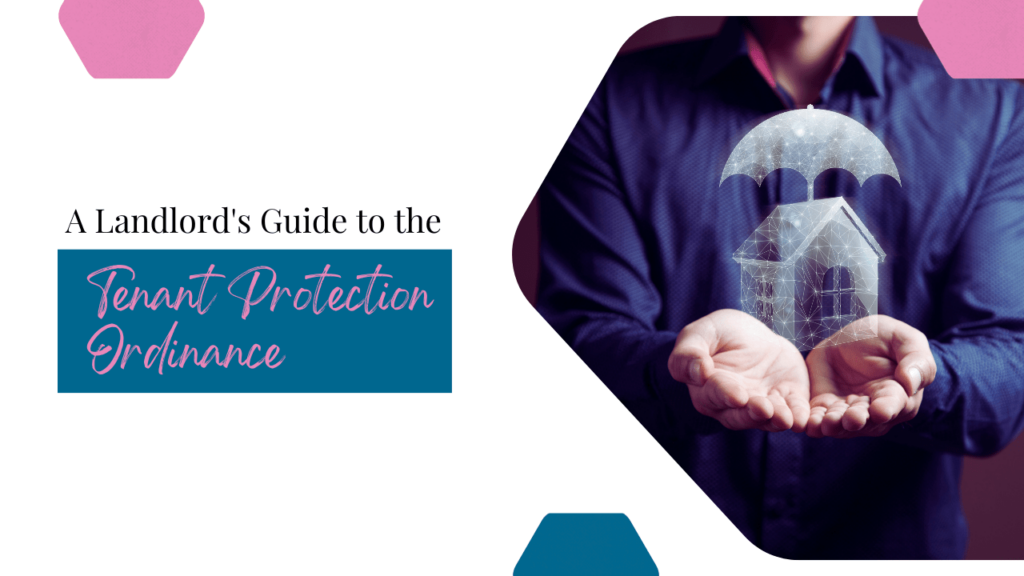
Tenant protection laws in San Mateo follow statewide Tenant Protection Act of 2019, which took effect in 2020. Worried about a rush in evictions prior to just cause eviction laws taking effect, San Mateo implemented an emergency ordinance in 2019, during the transition period of October, 2019, and the effective date of the new laws, January 1, 2020.
In San Mateo, tenant protections fall generally into three categories:
- Rent stabilization, which prevents landlords from raising rent on certain properties more than a specific amount.
- Just cause eviction, which prohibits landlords from evicting a tenant without cause.
- Section 8 housing eligibility. You’re no longer permitted to refuse applications from tenants with Section 8 housing vouchers.
Here’s your guide to these tenant protections and how they impact your San Mateo rental property.
San Mateo Rent Stabilization
Here are the basics of how and when you can increase your rent:
- Over the course of any 12-month period, you cannot increase the rental rate more than five percent plus the percentage change in the cost of living, or 10 percent, whichever is lower.
- If your tenant has been in the unit for more than 12 months, the rental rate cannot be increased in more than two increments over the 12-month period.
- When you have a vacant unit, you can set the rental rate as high as you want before those tenants take possession. But, once residency is established, the new law applies.
It’s easy to make a mistake with timing and amount. We recommend you talk to an attorney or an experienced San Mateo property manager before you make any rental increases, just to be sure you’re compliant.
If you are exempt from the rent control laws, you still want to pay attention to where the Consumer Price Index (CPI), which sets the cost of living increase, resets every year. You don’t want to raise your rents too much or you won’t remain competitive in the San Mateo rental market.
Not all San Mateo rental properties will be affected by the statewide rent control law, and your eligibility depends on property age and type as well as whether the owner is an individual or a corporation.
- The rent stabilization law applies to any property that has not been issued a certificate of occupancy in the last 15 years. If your property was constructed 15 or more years ago and it’s a multifamily residence, this law would likely apply to you.
- Single-family homes and condos are excluded unless you are a real estate corporation or a real estate investment trust. The law also does not apply to you if you own a duplex and you’re living in one unit and renting the other out.
The purpose of this law is to restrict the frequency and amount of rental increases on corporate-owned properties and large apartment buildings. If you’re an individual investor, you are probably exempt unless you own some multi-family units that are older than 15 years.
Your lease agreement needs to reflect whether your property is subject to or exempt from rent stabilization. If you’re included in the rent control law, you’ll want to put something in your lease agreement to reflect that. It’s even more important to adjust your lease agreement if you’re exempt from the law. You want to notify your residents that the property they’re living in does not fall under this new law. This will eliminate confusion and disputes.
Just Cause Evictions in San Mateo and California
The Tenant Protection Act also addresses just cause evictions. Before this law took place, many rental property owners in San Mateo could decide arbitrarily whether or not they wished to renew a lease agreement with the tenant. You weren’t required to. If you wanted to move on or look for another tenant, you simply did not renew the lease agreement.
Under the new law, tenant protections require you to only evict a tenant when you have just cause.
There are at-fault lease terminations or evictions and no-fault lease terminations or evictions.
- An at-fault lease termination or a just cause eviction would be due to nonpayment of rent or breach of the lease agreement. If a tenant is found to be conducting criminal behavior inside the home, they can be evicted immediately.
- No-fault lease terminations occur when an owner wants to move back into the property or has plans to demolish the property and build something else. With the no-fault termination of a lease, you will be responsible for compensating that tenant for relocation expenses which equal the amount of one month’s rent.
Rent control and just cause eviction laws require your attention, even if your property is exempt from them.
Section 8 and San Mateo Tenant Screening
 One of the statewide laws that was included in the Tenant Protection Act of 2019 concerns Section 8 tenants and renters who benefit from housing voucher programs. All applicants must be considered for your property and screened consistently, regardless of how they earn their income. Those housing vouchers used by Section 8 tenants can be legally considered a source of income.
One of the statewide laws that was included in the Tenant Protection Act of 2019 concerns Section 8 tenants and renters who benefit from housing voucher programs. All applicants must be considered for your property and screened consistently, regardless of how they earn their income. Those housing vouchers used by Section 8 tenants can be legally considered a source of income.
This impacts how you market your rental property and screen your potential tenants. In the past, you could actively advertise that you did not accept Section 8 tenants for a property. There was some distinction about whether certain units were approved for Section 8. This is no longer legal.
Update and document your qualifying rental criteria. When it comes to being fair to Section 8 tenants, all of your screening criteria can remain the same. Those income standards can, however, be met when a housing voucher brings in enough money for the tenants to qualify to rent your home.
We know that these tenant protections can often seem confusing and overwhelming. We’re here to make sense of it for you and to ensure you’re compliant. Please contact us at Bayside Management. We lease, manage, and maintain investment properties in San Mateo and around the Peninsula, including San Carlos, Redwood City, Pacifica, San Bruno, Half Moon Bay, Daly City, Mountain View, Foster City, and Palo Alto.
 Peter Boda
Peter Boda Jeff Hacker
Jeff Hacker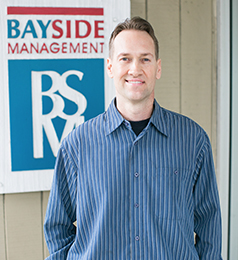 Dylan Motchar
Dylan Motchar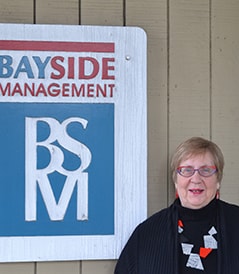 Barbara Boyd
Barbara Boyd Joanelle Russell
Joanelle Russell Mary Wiegmann
Mary Wiegmann Joseph DeNoia
Joseph DeNoia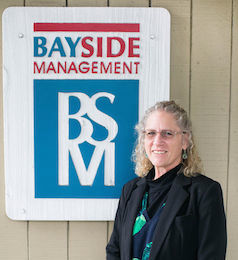 Beth Nagy
Beth Nagy Jasmin Peraza
Jasmin Peraza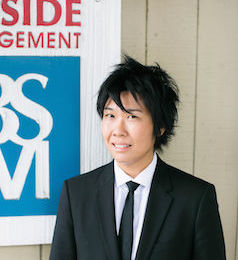 Carmin Wong
Carmin Wong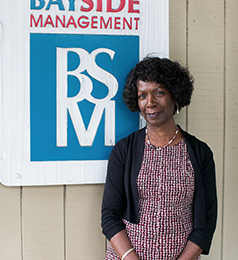 Pauline Smith
Pauline Smith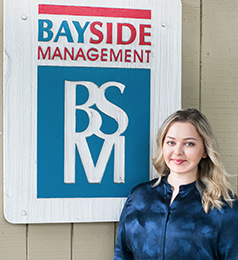 Victoria Taylor
Victoria Taylor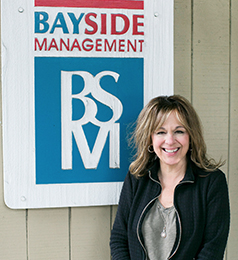 Yvette Perreca
Yvette Perreca Anthony Fregoso
Anthony Fregoso Anthony Thompson
Anthony Thompson Drew Reischl
Drew Reischl Nick Lange
Nick Lange Collette Counter
Collette Counter Justin Barton
Justin Barton